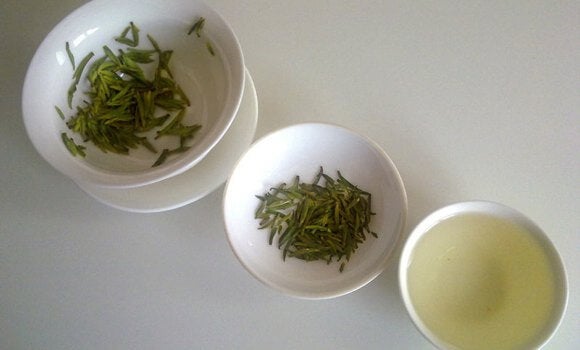Dietary Antioxidants Don’t Protect Against Dementia Or Stroke, New Study Shows

Share
Still dutifully taking your antioxidants in order to fend off cancer, heart disease, or to maintain a healthy, lucid mind? If you answered yes to number three, you may be wasting your time. According to a new study, dietary antioxidants don’t decrease risk for dementia and stroke in older people. It’s the latest in a growing number of studies that cast doubt on the much hyped health benefits of antioxidants.
The study, based in the Netherlands, included 5395 people 55 years and older who completed a dietary questionnaire at the beginning of the study. All participants were free from dementia, and 5285 of them had never had a stroke. Researchers used a urine-based assay to measure the antioxidant content of their diets. After 14 years, 599 of the participants had been diagnosed with dementia – 484 of these were diagnosed with Alzheimer’s disease – and 601 had a stroke for the first time. Statistical analysis, however, showed no affect of antioxidant intake on risk of dementia or risk of stroke – those who consumed the most antioxidants had the same likelihood of developing dementia or stroke than those who consumed the least. The researchers also used brain scans to measure brain size as brain shrinkage occurs with the development of dementia. Again, the amount of antioxidants one took didn’t make a difference.
The study, led by Elizabeth Devore at Harvard’s Brigham and Women’s Hospital, was published in the Feb. 20 issue of Neurology.
“There is the thought that overall antioxidants might be helpful, but it’s also true that if you actually look at the individual antioxidants, there’s not necessarily a reason to think that one would behave exactly the same way in the body as the next,” Dr. Devore told Reuters Health.
Devore and her co-authors acknowledge this in the paper, noting that their study only considered antioxidants found in food and thus their conclusions do not rule out the possibility that certain antioxidant supplements may help prevent dementia or stroke. Indeed, elsewhere on the Harvard campus beta-carotene supplement use were shown to improve cognitive performance, albeit modestly, over long term (18 years), but not short term (1 year) use. Importantly, participants were blind to whether or not they received beta-carotene or placebo.

A new study shows adds to growing evidence that antioxidants don't prevent disease. [Source: Wikipedia]
Antioxidants protect the body’s trillion cells against free radicals. These volatile chemicals react with the cells to steal their electrons, causing damage to the cells and the genetic material they carry. Free radicals are everywhere – in the food we eat and the byproducts created when we turn that food into energy, in the reactions that occur when sunlight hits our skin, even in the air we breath.
Be Part of the Future
Sign up to receive top stories about groundbreaking technologies and visionary thinkers from SingularityHub.


Antioxidants protect us from these electron snatchers by offering up their own electrons so that cells and DNA molecules don’t have to. The antioxidants most familiar to us are the carotenoids vitamin C, vitamin E, beta-carotene and the minerals selenium and manganese. But these are just five of what are probably thousands of antioxidants in nature. A common mistake is to consider the diverse members of this molecular family as interchangeable – to speak of antioxidants as if they were all one and the same and to add them to our diets indiscriminately, expecting equal benefits from one to the next. But nature is rarely if ever as simple as our attempts to categorize it.
Which is why the current study’s findings shouldn’t, by themselves, be generalized. Add to Dr. Devore’s qualification that the study doesn’t address neurological protection of supplemental antioxidants the qualification that their conclusions were based on a single population, people in or near the Netherlands. It’s conceivable that genetic and/or – because not all antioxidants are alike – dietary differences between this population and another could account for the lack of effect in the former whereas one would have been seen in the latter.
That being said, looking more broadly at antioxidant research, it looks as though the field is spending a lot of time trying to demonstrate something that at one point appeared so logical it must be true. But when it has been put to the test, that logic gathers more doubt than validation.
The Harvard School of Public Health sums up the research like this: “Randomized, placebo-controlled trials...offer little support that taking vitamin C, vitamin E, beta-carotine, or other single antioxidants provides substantial protection against heart disease, cancer, or other chronic conditions. The results of the largest such trials have been mostly negative.”
The National Institute of Health’s National Center for Complementary and Alternative Medicine states more succinctly, “Diets high in vegetables and fruits, which are good sources of antioxidants, have been found to be healthy; however, research has not shown antioxidant supplements to be beneficial in preventing diseases.”
But, some consider the jury to still be out as the NIH lists a large number of trials planned or ongoing to investigate the protective effects of antioxidants are still ongoing, including several focused on dementia and stroke. So, whichever side you’re leaning, there’s more data to come. But if it things continue the way they’ve been going, we would do well to remember what the EEnglish biologist Thomas Henry Huxley once said the next time we reach for that green tea: “The great tragedy of Science – the slaying of a beautiful hypothesis by an ugly fact.”
Peter Murray was born in Boston in 1973. He earned a PhD in neuroscience at the University of Maryland, Baltimore studying gene expression in the neocortex. Following his dissertation work he spent three years as a post-doctoral fellow at the same university studying brain mechanisms of pain and motor control. He completed a collection of short stories in 2010 and has been writing for Singularity Hub since March 2011.
Related Articles

More Space Junk Is Plummeting to Earth. Earthquake Sensors Can Track It by the Sonic Booms.

Researchers Break Open AI’s Black Box—and Use What They Find Inside to Control It

This Week’s Awesome Tech Stories From Around the Web (Through February 21)
What we’re reading
